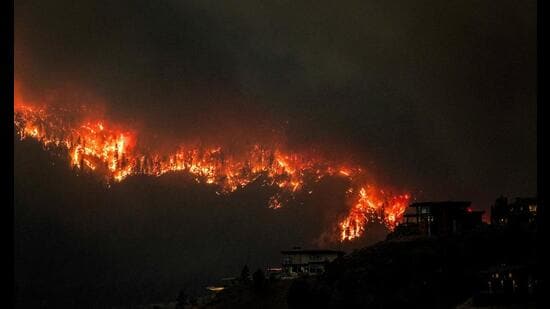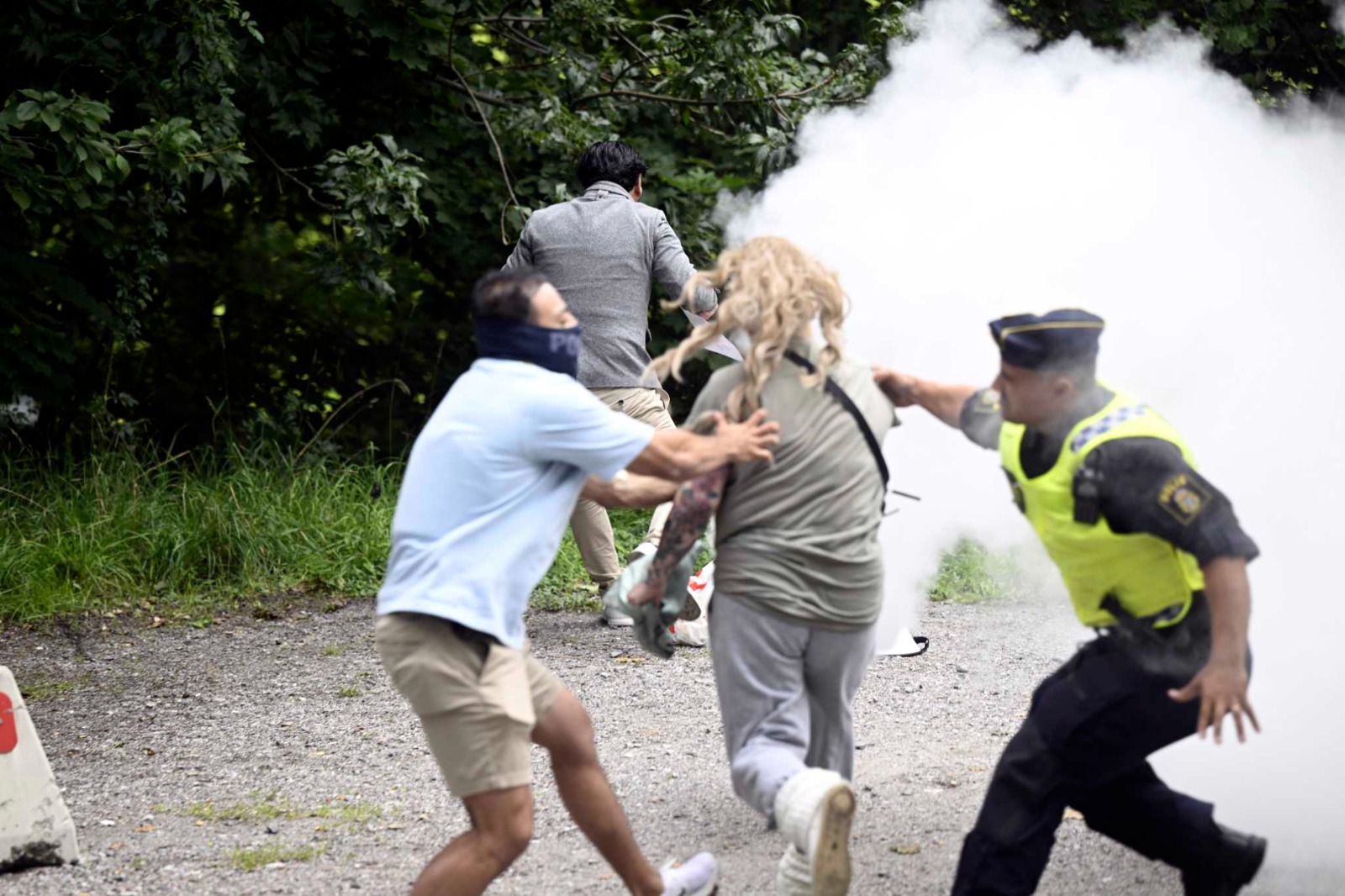As flames race across Canada’s western province of British Columbia, a state of emergency has been declared amidst fears that the relentless wildfires could obliterate more homes in the vicinity of West Kelowna. Premier David Eby’s stark warning rings clear: “the situation has evolved rapidly and we are in for an extremely challenging situation in the days ahead.” With the McDougall Creek wildfire’s staggering growth from 64 to 6,800 hectares in just 24 hours, the urgency for action is paramount.
Rapidly Escalating Wildfires Threaten Homes and Displace Thousands
The heart-wrenching sight of homes engulfed in flames has become all too familiar as wildfires spread with unprecedented ferocity. Around the city of West Kelowna, the McDougall Creek wildfire’s rampage has forced approximately 4,800 people to flee their homes under evacuation orders. Further north, in Canada’s Northwest Territories, another colossal wildfire has led to the displacement of roughly 22,000 individuals – nearly half the population. As the wildfire edges closer to Yellowknife, the federal territory’s capital, the clock ticks louder for those who have yet to evacuate.
Premier’s Urgent Call to Action: State of Emergency Declared
In response to the escalating crisis, Premier David Eby has issued a provincial state of emergency, a crucial move to expedite support for the beleaguered communities. “This year, we’re facing the worst #BCWildfire season ever,” Eby urgently conveyed on social media platform X. This declaration empowers authorities to access necessary resources rapidly and potentially enforce travel restrictions to specific areas if safety precautions are not heeded. With the wildfire’s relentless march, the need for swift and resolute action is undeniable.
Community Resilience Amidst Devastation: Stories of Survival Emerge
Amidst the heartache and destruction, stories of unwavering resilience and courage have surfaced. Residents of West Kelowna and its twin city Kelowna, situated along the eastern shore of Okanagan Lake, have confronted the flames head-on. Juliana Loewen recounted how a plume of smoke descended over the mountains like a “cloud of destruction,” pushing some to leap into the lake as escape routes vanished. Houses were reduced to ashes, and yet no fatalities have been reported – a testament to the strength and spirit of these communities.
The devastating situation was not lost on West Kelowna’s fire chief, Jason Brolund, who described the battle against the wildfire as a herculean endeavor: “We fought 100 years worth of fires all in one night.” Unfortunately, significant structural losses have already been noted, including in Trader’s Cove, located just north of West Kelowna. While the inferno rages on, locals and firefighters alike work tirelessly to protect what remains.
In a region familiar with wildfires due to its “California-style climate,” the convergence of extreme heat, aridity, and wind has birthed the “perfect conditions for a firestorm,” according to Juliana Loewen. The skies around Kelowna International Airport, once a bustling hub, are now dominated by aerial firefighters, their valiant efforts representing the community’s last line of defense against the encroaching blaze.
As Canada’s western landscapes transform into battlefields against nature’s fury, the rallying cry for solidarity grows stronger. The determination of residents and the unwavering dedication of emergency responders create a beacon of hope amidst the dark clouds of devastation. Yet, as the flames remain unyielding, the desperate scramble to save lives and homes continues, illustrating the raw and unbreakable spirit that binds these communities together in their fight for survival.
















